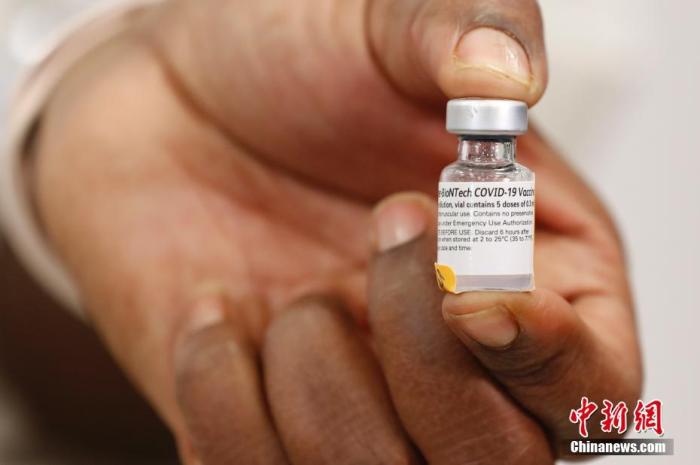December 30th local time, the coronavirus vaccine jointly developed by Oxford University and the pharmaceutical company AstraZeneca was approved for emergency use in the United Kingdom.
Following the news, Oxford University, in an email to The Paper (www.thepaper.cn), welcomed the British government’s acceptance of the proposal today by the National Drug Health Authority (MHRA) to authorize the ChAdOx1 nCoV-1 jointly developed by it and AstraZeneca.
9 The coronavirus vaccine is urgently used in the UK.
The statement pointed out that the Joint Commission on Vaccination and Immunization (JCVI) of the United Kingdom will also issue its latest recommendations for reference to some priority groups.
JCVI has suggested that priority should be given to receiving the first dose as many people at high risk as possible, rather than providing some people with the required two doses in the shortest possible time.
However, the statement also said that it is very important to receive a second dose of vaccine to complete the whole course of treatment, which will benefit the long-term protection of the vaccine for the human body.
Those who have finished the first dose of the vaccine need to be given a second dose within 12 weeks, which JCVI believes can maximize the effect of the vaccine, thus ensuring that people at risk can receive “meaningful protection” and relieve the pressure on the National Health Service (NHS).
“The approval of the vaccine in the UK is a landmark moment and a huge recognition of the efforts of all vaccine development teams and participants in the trials,” said Professor Andrew Pollard, the director of the Oxford Vaccine Group and the lead researcher of the Oxford Vaccine Trials. While this is just the beginning, we can be ahead of the pandemic as long as we vaccinate as many and as possible to keep vulnerable people everywhere, and save the economy.
Sarah Gilbert, professor of vaccine science at Oxford University, said that the team still has more work to do and will continue to provide more data to multiple regulators until “the vaccine is used to save lives around the world”.
It is understood that the Oxford-AstraZeneca vaccine (ChAdOx1 nCoV-19) is made from a weakened version of the common cold virus (adenovirus), which is genetically modified and therefore safe and impossible to grow in humans.
It is stable, easy to manufacture and transport, and can also be stored at home refrigerator temperatures (2-8 degrees Celsius), so it can be easily managed in existing medical environments and quickly deployed everywhere.
At present, AstraZeneca has signed agreements with many countries and institutions, with a total of 3 billion doses of vaccines, and is now establishing supply channels through more than 30 supply agreements and partner networks.
A key factor in Oxford University’s partnership with AstraZeneca is the mutual commitment to provide vaccines in a nonprofit manner during the global pandemic and to provide vaccines to low- and middle-income countries permanently, according to The Paper.



